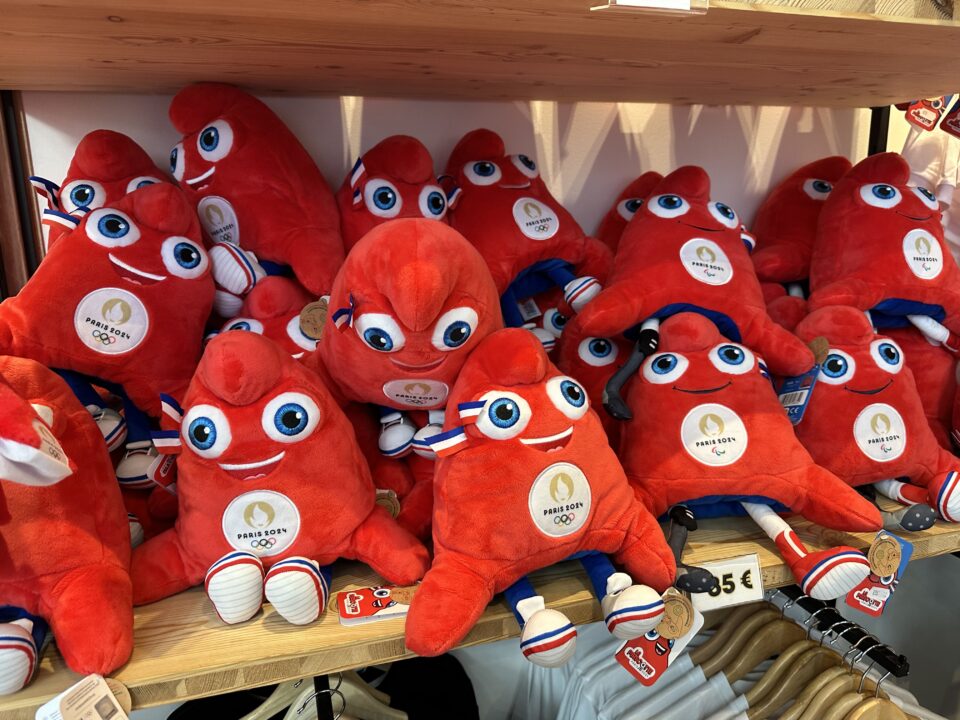The International Olympic Committee has published its Guidelines on Athlete Expression for the Paris 2024 Olympic Games.
Including an introduction by the IOC Athletes’ Commission, presumably to make the instruction feel more peer-given and less administrator-mandated, the guidelines come at a contentious moment globally where many athletes will have a lot to say from their platforms at the Olympic Games. With ongoing wars in the middle east, Ukraine, Africa, and Asia, as well as growing tension globally in domestic politics, the likelihood of protests at the Games is very high.
The IOC softened Rule 50, which governs athlete expression, ahead of the Tokyo 2020 Olympic Games. That new rule allowed expression on the field of play before the start of competition or during athlete introductions, so long as the gesture wasn’t targeted against “people, countries, organizations, and/or their dignity,” and wasn’t disruptive. That was primarily in response to athletes ‘taking a knee’ before sporting events in order to bring attention to social causes.
But there were still limits on the changes. Athletes were still not allowed to make signs of protest or expression during official ceremonies like medal ceremonies, in the Olympic Village, or during competition on the field of play.
The easing of restriction allowed athletes to wear clothing with general phrases like “peace” or “inclusion” on them, but not specific phrases like “Black Lives Matter.”
The Athletes’ Commission says that it developed the new guidelines after consulting with more than 3,500 athletes – claiming that 70% of respondents said that they didn’t want athletes to demonstrate during competition or official ceremonies.
The rules for Paris will be similar, with the IOC having more-fully fleshed out the Guidelines with more examples of what is and isn’t allowed. Specifically, athletes are allowed to express their views outside of Olympic sites or venues and before and/or after the Olympic Games, which is not subject to Rule 50 restrictions.
During the Olympics, the IOC specifically lists these ways where athletes are allowed to “express their views.”
- In the mixed zones, including when speaking to media
- In the International Broadcasting Centre (IBC) or the Main Media Centre (MMC), including when speaking to the media
- During press conferences in the venue or in the MMC
- During interviews
- At team meetings
- In traditional media or digital media
- Through social media channels
- On the field of play prior to the start of competition or during the introduction of the individual athlete or team provided that the expression is:
- Consistent with the fundamental Principles of Olympism
- Not targeted, directly or indirectly, against people, countries, organizations, and/or their dignity
- Not disruptive (by way of example only, the following expressions are considered disruptive:
- expressions during another athlete’s or team’s national anthem and/or introduction, as this may interfere with such other athlete’s or team’s concentration on and/or preparation for the competition
- Physical interference with the introduction of another athlete or team or the protocol itself (for example, unfurling a flag, a banner, etc.)
- Causing (or assuming the risk of causing) physical harm to persons or property, etc.
- Not prohibited or otherwise limited by the rules of the relevant National Olympic Committee (NOC) and/or the competition regulations of the relevant International Federation (IF).
The IOC also lists moments in which athletes are not allowed to express their views
- During official ceremonies (including Olympic medal ceremonies, opening and closing ceremonies)
- During competition on the field of play
- In the Olympic village
Violations of the Guidelines could result in IOC disciplinary proceedings, where evaluation of cases by the IOC could result in punishments up to and including expulsion and disqualification of the person involved.
“As athletes, we are passionate about our sports and achieving our sporting performance goals,” the letter from the Athletes’ Commission says. “For each and every one of us, that passion continues into everyday life, where we advocate change on issues of great importance to us and our world. That desire to drive change can naturally make it very tempting to use the platform of an appearance at the Olympic Games to make our point.
“However, all of us are at the Olympic Games because, one day, we dreamt of being an Olympian and maybe even an Olympic champion. The unique nature of the Olympic Games enables athletes from all over the world to come together in peace and harmony. We believe that the example we set by competing with the world’s best at the Olympic Games and staying in the Olympic Village while respecting each other’s differences is a uniquely positive message to send to an increasingly divided world.”
The letter goes on to affirm the IOC’s and IOC Athletes’ Commission’s support for freedom of expression.
The Guidelines conclude with a printing of the Fundamental Principles of Olympism from the Olympic Charter, which includes the idea that “belonging to the Olympic Movement requires compliance with the Olympic Charter.”

I can’t help thinking that “Not targeted, directly or indirectly, against people, countries, organizations, and/or their dignity” is really quite vague, and can likely have very broad interpretations. For example, are expressions of solidarity with Ukraine “indirectly targeted” against Russia?
So the Aussies will be able to tell the Yanks where to stick their cowbells?
Oh yes please! I’ve got a few ideas.
“athletes are allowed to express their views outside of Olympic sites or venues and before and/or after the Olympic Games”
Well thank god the IOC dictatorship lets the athletes have freedom of speech in their own homes before and after the games. Once you step out of that Uber, no more closed fists.
Can you throw up a Wolfpack or Longhorn sign? I would love to see Leon go ASU “forks up” on the medal stand.
It’s the Olympics. They are representing their country.